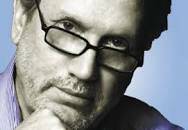The Washington Post
If the coronavirus pandemic turned “working from home” into common parlance, “learning from home” might be next: The Post reported last year on the skyrocketing number of home-schooled children, of whom reporters estimate there are now between 1.9 million and 2.7 million. Data on these students is spotty, so that’s only a guess — which itself raises big concerns.
Home schooling was once a niche practice, attractive mostly to religious households dissatisfied with the secular public school system. Now, it has increased by what might be as much as 51% over the past six academic years — across geography and demography alike. Some parents are disturbed by politics in education; others are concerned about safety from shootings; others still see it as the best choice for their kids who don’t feel comfortable in the classroom. Home schooling includes not just parents teaching their own children in their own homes. Cooperative arrangements called microschools, for example, are cropping up; parents coordinate activities through Facebook. Many home-schooled kids today play competitive sports against each other, go to prom and don caps and gowns for graduation.
Several states are encouraging this trend, with at least six extending vouchers to home-schoolers, offering parents thousands of dollars per year to educate children outside the public school system. But the influx of funding hasn’t been accompanied by a matching increase in oversight — and states that aren’t funneling dollars into home schooling are scarcely paying attention to the practice at all. 11 states, including Texas, Connecticut and Illinois, don’t even require notification when families choose to educate their children at home. And even if a state keeps track of who is learning from the kitchen table, it is not necessarily monitoring those students’ well-being: Fewer than half of states require any sort of assessment of home-schooled kids. Most oversight that does occur is minimal. Only five states, according to the Coalition for Responsible Home Education, have “thorough” regimens.
None of this means that home schooling isn’t a good choice for plenty of children. It only means that when it’s a bad choice, fairly often no one finds out — much less intervenes. The science on home schooling has always been iffy. Home-school advocates have tended to cite research by, well, home-school advocates, and even disinterested academics have had a hard time accounting for self-selection: The home-schooled students who take standardized tests tend to be the ones more likely to perform well on them, for one thing. For another, home-schooled kids generally tend to come from wealthier backgrounds. More recently, studies have found mixed results, though there is one through line: a relative strength in the humanities alongside weakness in math and science.
But it’s not the average home-schooler policymakers should be worried about — it’s the child who is left far, far behind. Sometimes, that’s a question of academics. Part of the allure of home schooling, for many parents, is the ability to depart from the typical path drawn by public education. Some home-school curriculum developers, for example, offer for purchase “unschooling” modules that allow children to direct their learning according to their interests and at their pace. But where there’s no oversight, there’s no guarantee that children will learn skills considered foundational in public education and essential to adult life. Many women from religious families who were home-schooled say their schooling focused on just that: the home. This, they were instructed, was a woman’s place, and accordingly, they were mostly taught how to bear and raise children.
Other tales are more alarming. The Post chronicles the life and death of one boy, 11-year-old Roman Lopez. His stepmother was “home schooling” eight children in her household, but at best they played video games all day — and at worst, as in Roman’s case, they were locked up, tortured and starved. Other abusive parents, it turns out, have seized on home education as a way to avoid catching the notice of social service agencies. Pediatricians have even shared concerns along these lines with politicians.
These grisly stories are probably rare exceptions, and abuse can go undetected by public schools, too. Yet, tightening of policy would benefit even those children whose parents are trying to responsibly educate them. New York has a robust model in which individuals providing instruction must be “competent” but needn’t have any teaching qualifications, and students must be assessed annually either by standardized test or portfolio evaluation. Pennsylvania has a similar but slightly more flexible system. The point isn’t to eliminate home schooling or to pick on families that want to educate their own way. As in public schools, all students should be assessed on the basics. State standards should ensure that all the kids are all right.
Send comments to [email protected].



